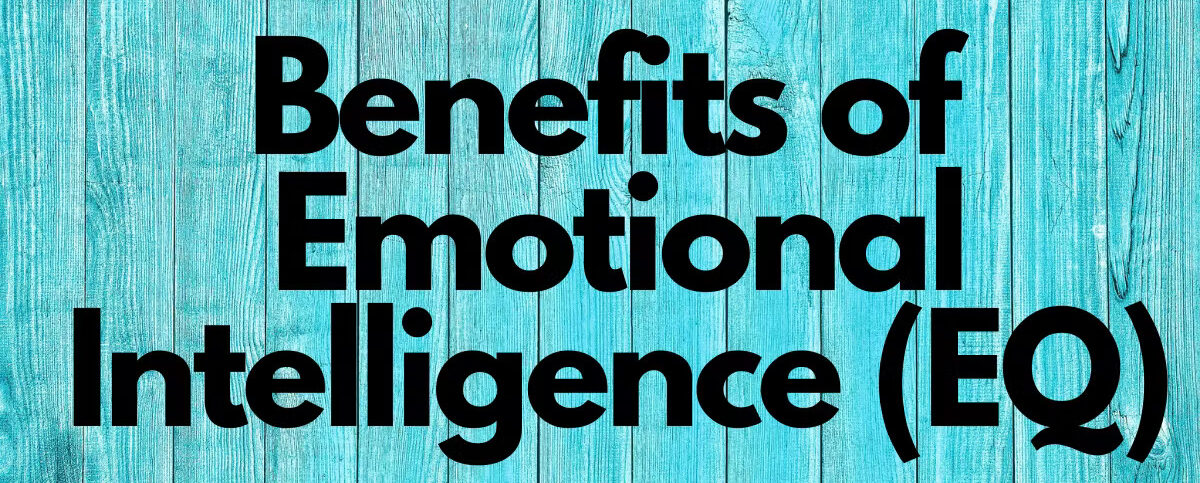Medically approved by
Rychel Johnson, M.S.,LCPC, a licensed clinical professional
Emotional intelligence (EI), often referred to as emotional quotient (EQ), is a critical aspect of human behavior and interaction. Unlike intelligence quotient (IQ), which measures cognitive abilities, EQ encompasses a person’s capacity to recognize, understand, manage, and express emotions effectively. In today’s dynamic world, where interpersonal relationships and social interactions play a pivotal role, EQ has emerged as a significant determinant of success, both personally and professionally. This article explores the concept of emotional intelligence, its importance, and practical ways to recognize and enhance it.
The Importance of Emotional Intelligence:
Emotional intelligence influences various aspects of life, including relationships, career success, mental well-being, and overall happiness. Individuals with high EQ are better equipped to navigate social complexities, manage stress, communicate effectively, and build meaningful connections with others. Research indicates that EQ is a stronger predictor of success than IQ in many areas of life, highlighting its significance in personal and professional development.
Recognizing Emotional Intelligence:
While emotional intelligence may manifest differently in individuals, certain indicators can help identify its presence. One way to gauge EQ is by observing how individuals manage their emotions and interact with others in different situations. Additionally, several assessment tools and tests, such as free EQ tests available online, can provide insights into one’s emotional intelligence levels for example a free eq test. These assessments typically evaluate various aspects of EQ, including self-awareness, self-regulation, empathy, social skills, and relationship management.
Understanding Love Languages:
A fundamental aspect of emotional intelligence is the ability to understand and respond to the emotions of others effectively. One concept that aligns with EQ is the notion of love languages, popularized by Dr. Gary Chapman. According to Chapman, individuals express and receive love in different ways, known as love languages. These languages include words of affirmation, acts of service, receiving gifts, quality time, and physical touch. Understanding the love language meaning of oneself and others can enhance interpersonal relationships and foster deeper connections.
The Concept of Love Languages:
Love languages refer to the different ways individuals express and experience love. According to Chapman, there are five primary love languages, each representing distinct ways people prefer to give and receive love. These love languages include words of affirmation, acts of service, receiving gifts, quality time, and physical touch. Understanding and speaking your partner’s love language is crucial for fostering emotional connection and satisfaction in relationships.
Exploring the Five Love Languages:
- 1) Words of Affirmation: This love language involves verbal expressions of love, appreciation, and encouragement. Compliments, expressions of gratitude, and words of encouragement are valued by individuals whose love language is words of affirmation.
- 2) Acts of Service: For individuals whose love language is acts of service, actions speak louder than words. Performing tasks or acts of kindness that alleviate the burden or fulfill a need for your partner demonstrates love and care in this language.
- 3) Receiving Gifts: Some individuals feel most loved when they receive tangible expressions of affection, such as thoughtful gifts. These gifts symbolize love, thoughtfulness, and consideration for individuals whose love language is receiving gifts.
- 4) Quality Time: Quality time is about undivided attention and meaningful connection. Spending uninterrupted time together, engaging in meaningful conversations, and sharing experiences strengthen emotional bonds for individuals whose love language is quality time.
- 5) Physical Touch: Physical touch is a powerful way to express love and affection. Holding hands, hugging, kissing, and other physical gestures convey warmth, intimacy, and connection for individuals whose love language is physical touch.
Applying Love Languages in Relationships:
Understanding your partner’s love language and actively incorporating it into your relationship can significantly enhance emotional connection and intimacy. Effective communication and observation are key to identifying your partner’s primary love language. Once identified, make intentional efforts to speak their love language regularly, showing love and appreciation in ways that resonate most with them. Additionally, encourage your partner to understand your own love language to create a reciprocal exchange of affection and care.
Cultivating Emotional Intelligence:
While some individuals may naturally possess higher EQ, emotional intelligence can be cultivated and developed over time with deliberate effort and practice. Various strategies can help individuals enhance their EQ, including:
- Self-awareness: Engage in introspection and reflection to understand your emotions, triggers, and behavioral patterns.
- Self-regulation: Learn to manage stress, control impulses, and regulate emotions effectively through mindfulness practices, relaxation techniques, and emotional regulation exercises.
- Empathy: Practice active listening, perspective-taking, and putting yourself in others’ shoes to understand their emotions and experiences.
- Social skills: Develop effective communication, conflict resolution, and interpersonal skills by engaging in social interactions, networking, and relationship-building activities.
- Relationship management: Foster healthy and supportive relationships by nurturing trust, empathy, and mutual respect, and effectively resolving conflicts and disagreements.
Conclusion:
Emotional intelligence plays a crucial role in shaping our interactions, decisions, and overall well-being. By recognizing and cultivating EQ, individuals can enhance their personal and professional lives, build stronger relationships, and navigate life’s challenges with resilience and empathy. Through self-awareness, self-regulation, empathy, and social skills, anyone can develop and harness the power of emotional intelligence to lead a more fulfilling and meaningful life.








